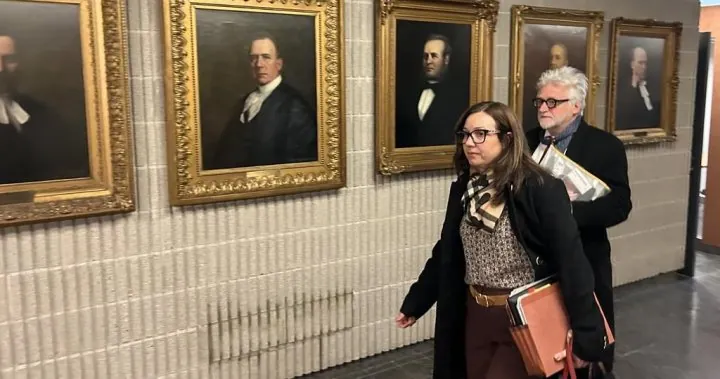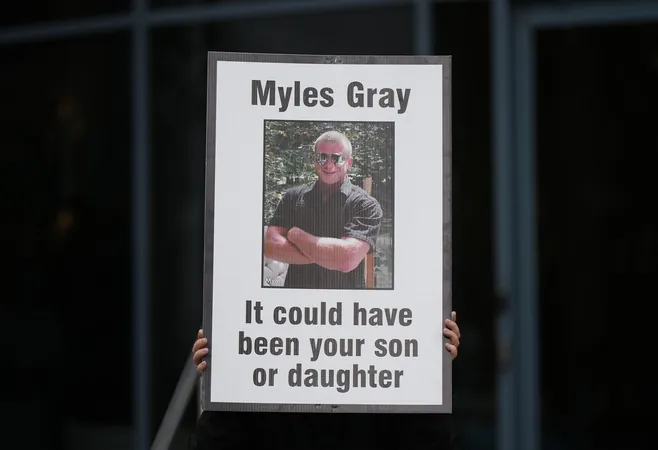
The Trial of Gilbert Rozon: A Spotlight on Sexual Assault Allegations in Quebec
2024-12-09
Author: Amelia
The civil trial of Gilbert Rozon, the founder of the renowned Just for Laughs comedy festival, commenced this week at the Montreal courthouse, unveiling serious allegations of sexual assault involving multiple women. Rozon, aged 70, is facing claims from nine complainants seeking nearly $14 million in damages. This high-profile case is anticipated to extend until the end of March 2025.
During the opening statements, Rozon’s attorney, Mélanie Morin, positioned her client as a victim of a societal witch-hunt aimed at finding Quebec's version of Harvey Weinstein. Morin asserted that Rozon engaged in consensual relationships with three of the women and denied all allegations of wrongdoing. As he entered the courthouse, Rozon expressed his faith in the judicial system, emphasizing his belief that the truth will prevail.
Morin highlighted that the allegations surfaced amidst the #MeToo movement, suggesting that the plaintiffs were influenced by a collective mindset to target a public figure. She accused the women of quickly organizing themselves, alleging that they "contaminated" each other’s recollections of events.
This trial is a critical chapter in a lengthy legal odyssey that began as a class-action lawsuit but was restructured into individual claims following a 2020 appellate court ruling. Bruce Johnston, representing the plaintiffs, argued that Rozon was, in fact, a "real predator" who utilized manipulative tactics to exploit his victims. He elaborated on Rozon’s alleged method of inducing a state of confusion and vulnerability in his targets, suggesting that such behavior constitutes sexual assault.
The emotional weight of the trial intensified as Johnston informed the court that about 77 witnesses are expected to testify over the course of the hearings. All nine claimants were present in the courtroom, ready to share their harrowing experiences. Lyne Charlebois, a film and television director, was the first to take the stand. She detailed a traumatic encounter from 1982 after a dinner with Rozon and her boyfriend, where she claims he assaulted her after luring her to his home under the guise of changing his shirt.
Charlebois recounted the night in vivid detail, stating that the assault left an indelible mark on her memory. “That night is clearer to me than when I gave birth to my son,” she testified, recalling the sheer terror of the moment. Despite confiding in loved ones at the time, she felt ashamed and believed she would not be believed, which prevented her from seeking justice until years later.
Other plaintiffs, including Annick Charette and Patricia Tulasne, are also part of the lawsuits, each sharing their own distressing accounts. Charette's earlier complaint resulted in a not-guilty verdict for Rozon on charges of rape and indecent assault due to lack of evidence from other potential cases.
Complicating the proceedings, Rozon’s defense team sought a two-week delay, citing concerns that recent legislative changes aimed at enhancing justice for sexual assault survivors could unfairly impact his right to a fair trial. However, Judge Chantal Tremblay denied the request, indicating that such matters could be addressed as the trial unfolds.
As the trial progresses, it not only serves as a critical examination of the allegations against Rozon but also sheds light on broader issues of sexual misconduct, accountability, and the ongoing cultural shifts encouraged by movements advocating for survivors. The outcome of this trial could significantly impact the conversation surrounding sexual violence and the justice system's responsiveness to such allegations in Canada.









 Brasil (PT)
Brasil (PT)
 Canada (EN)
Canada (EN)
 Chile (ES)
Chile (ES)
 España (ES)
España (ES)
 France (FR)
France (FR)
 Hong Kong (EN)
Hong Kong (EN)
 Italia (IT)
Italia (IT)
 日本 (JA)
日本 (JA)
 Magyarország (HU)
Magyarország (HU)
 Norge (NO)
Norge (NO)
 Polska (PL)
Polska (PL)
 Schweiz (DE)
Schweiz (DE)
 Singapore (EN)
Singapore (EN)
 Sverige (SV)
Sverige (SV)
 Suomi (FI)
Suomi (FI)
 Türkiye (TR)
Türkiye (TR)